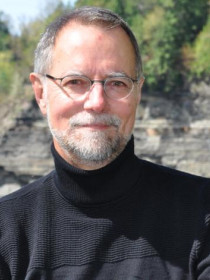Connect with Robert
About Robert
Frank’s research focuses on the causes and consequences of growing income inequality, and he writes a regular column for the New York Times. He earned a BS in mathematics from the Georgia Institute of Technology, and an MA in statistics and PhD in economics from the University of California at Berkeley. Frank’s 1995 book with Philip Cook was named a notable book by the New York Times. He served as a Peace Corp Volunteer in Nepal and as Chief Economist for the Civil Aeronautics Board. An award-winning teacher, Frank publishes widely for the educated public as well as in academic outlets.
Contributions
Why the Rich Have an Interest in Paying Higher Taxes
Basic Facts Brief,
In the News
"'Clarity of thought.' The Case for Investing More Public Dollars in Higher Education.," Robert H. Frank, Interview with Tom Martin, Lexington Herald Leader, April 22, 2018.
Robert H. Frank's research on the role of luck in success discussed by , "Why the Myth of a Perfect Meritocracy is So Pernicious," Vox, December 15, 2017.
"What Comes Next for Obamacare? The Case for Medicare for All," Robert H. Frank, New York Times, March 24, 2017.
"Federal Policy Will Shift. Not All States Will Shift with It.," Robert H. Frank, New York Times, January 20, 2017.
"Handouts with a Twist: Rebuilding America’s Infrastructure," Robert H. Frank, New York Times, November 11, 2016.
Robert H. Frank's research on the spending of the wealthy discussed by , "Why We Should Tax Conspicuous Consumption," Moyers & Company, October 27, 2016.
"The Rich Vote Republican? Maybe Not This Election," Robert H. Frank, New York Times, October 22, 2016.
Robert H. Frank's research on the role of luck in success discussed by , "Why Luck Plays a Big Role in Making You Rich," Bloomberg, September 1, 2016.
"Are You Successful? If So, You’ve Already Won the Lottery," Robert H. Frank, The Upshot, New York Times, May 20, 2016.
Robert H. Frank's research on workplace competition discussed by , "Work Policies May be Kinder, but Brutal Competition Isn’t," New York Times, August 17, 2015.
Robert H. Frank quoted on comparing public attitudes with inequality trends by Thomas B. Edsall, "Has Obamacare Turned Voters against Sharing the Wealth?" New York Times, April 15, 2015.
Robert H. Frank quoted on income inequality by Patricia Cohen, "Middle Class, but Feeling Economically Insecure" New York Times, April 13, 2015.
"Luck vs. Skill: Seeking the Secret of Your Success," Robert H. Frank, New York Times, August 4, 2012.
"The Progressive Consumption Tax: A Win-Win Solution for Reducing American Inequality," Robert H. Frank, Slate, December 7, 2011.
"Why Has Inequality been Growing? How Technology and Winner-Take-All Markets Have Made the Rich So Much Richer," Robert H. Frank, Slate, December 6, 2011.
"Does Inequality Matter? How Expenditure Cascades are Squeezing the Middle Class," Robert H. Frank, Slate, December 6, 2011.
Guest to discuss his book, The Darwin Economy on PBS’s NewsHour, Robert H. Frank, November 18, 2011.
"The Darwin Economy: Liberty, Competition, and the Common Good," Robert H. Frank, Interview with Diane Rehm, NPR, October 27, 2011.
Guest to discuss a progressive consumption tax on MSNBC’s Morning Joe, Robert H. Frank, October 24, 2011.
Guest to discuss economic recovery policy on MSNBC’s Rachel Maddow Show, Robert H. Frank, August 4, 2011.
Publications
"The Darwin Economy" (Princeton University Press, 2011).
Far from creating a perfect world, economic competition often encourages behaviors that harm the common good without lasting advantages to individuals. By taxing harmful behaviors, we can make the economic pie larger, eliminate government debt, and provide better public services without demanding painful sacrifices from anyone.
"Falling Behind: How Rising Inequality Harms the Middle Class" (University of California Press, 2007).
Shows how concentrations of wealth and income at the top have raised the cost of achieving many goals for the middle class, causing people to spend more despite stagnating incomes and carry record levels of debt.
"Progressive Consumption Taxation as a Remedy for the U.S. Savings Shortfall" The Economists’ Voice 2, no. 3 (2005): 178-190.
Argues that declines in the U.S. savings rate result in part from the pressures caused by escalating consumption standards. Rising inequalities of wealth and income make the situation worse. A progressive consumption tax can help to remedy the savings shortfall.
"The Winner-Take-All Society" (with ) (The Free Press, 1995).
Argues that skyrocketing growth in earnings for the top one percent of Americans has been encouraged by the spread of winner-take-all-markets in fields ranging from sports and entertainment to law and finance.
"Does Studying Economics Inhibit Cooperation?" (with ). Journal of Economic Perspectives 7, no. 2 (1993): 159-171.
Reports research showing that exposure to economic theories stressing self-interest prompt people, including university students, to become more individualistic and less oriented to the common good.
